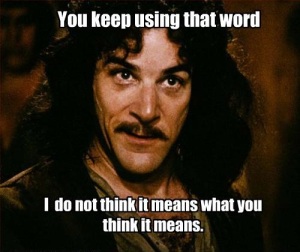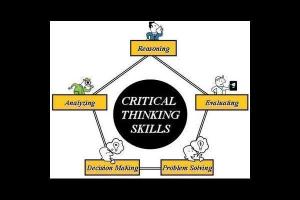I’m still trying to figure out the new pope, Francis I. Initially, I was very skeptical and even negative about his election. After all he was carrying all that baggage from Argentina’s “dirty war.” And some incidents there made me see Francis as just another right-winger in the tradition of his immediate predecessors, Benedict XVI and John Paul II. Tongue partly planted in cheek, I called for his resignation.
Gradually however, I’ve come to question my rush to judgment. True, the new pope faltered with early missteps regarding women. He seemed to reiterate Benedict XVI’s admonition to U.S. women religious to focus more on the issues of contraception, abortion, and same-sex marriage, rather than on social justice for the poor and electoral politics. He even warned a group of sisters against becoming “spinsters” or “old maids” (depending on the translation) rather than fruitful celibates.
But then he went to that women’s prison on Holy Thursday and drew fire from conservatives for including women among those whose feet he washed that day. I concluded that the jury is still out concerning Francis and women. Like most of us males, he clearly has room to grow.
As I wait for the jury’s verdict, two recent incidents have led me towards a more positive evaluation in the court of my own mind. To begin with, Leonardo Boff, a leading liberation theologian who had been silenced by the Ratzinger-Wojtyla team, surprised me by his own positive assessment. He even identified the new pope as a “field” liberation theologian as opposed to a “desk” theologian. Despite his reservations in the past about liberation theology, Bergoglio, Boff said, was truly committed to the poor. Boff was hopeful that the Argentinian might change the direction of the Vatican policy of suspicion and rejection over the last 30 years towards the “preferential option for the poor” so central in the thought of activists committed to the welfare of the world’s poor majority.
Then a couple of weeks ago, a second occurrence made me think Boff might have a point. The pontiff made some surprisingly critical remarks about capitalism and ethics to a group of new ambassadors to the Vatican.
Here are some excerpts. They are worth quoting at length:
“. . . We must also acknowledge that the majority of the men and women of our time continue to live daily in situations of insecurity, with dire consequences. . . The financial crisis which we are experiencing makes us forget that its ultimate origin is to be found in . . . the denial of the primacy of human beings! We have created new idols. The worship of the golden calf of old (cf. Ex 32:15-34) has found a new and heartless image in the cult of money and the dictatorship of an economy which is faceless and lacking any truly humane goal.
The worldwide financial and economic crisis seems to highlight . . the gravely deficient human perspective, which reduces man to one of his needs alone, namely, consumption. Worse yet, human beings themselves are nowadays considered as consumer goods which can be used and thrown away. We have started a throw-away culture.
This tendency is . . . being promoted! In circumstances like these, solidarity, which is the treasure of the poor, is often considered counterproductive, opposed to the logic of finance and the economy. While the income of a minority is increasing exponentially, that of the majority is crumbling. This imbalance results from ideologies which uphold the absolute autonomy of markets and financial speculation, and thus deny the right of control to States, which are themselves charged with providing for the common good. A new, invisible and at times virtual, tyranny is established, one which unilaterally and irremediably imposes its own laws and rules . . . The will to power and of possession has become limitless.
Concealed behind this attitude is a rejection of ethics, a rejection of God. Ethics, like solidarity, is a nuisance! It is regarded as counterproductive: as something too human, because it relativizes money and power; as a threat, because it rejects manipulation and subjection of people: because ethics leads to God, who is situated outside the categories of the market. God is thought to be unmanageable by these financiers, economists and politicians, God is unmanageable, even dangerous, because he calls man to his full realization and to independence from any kind of slavery. . . I encourage the financial experts and the political leaders of your countries to consider the words of Saint John Chrysostom: “Not to share one’s goods with the poor is to rob them and to deprive them of life. It is not our goods that we possess, but theirs” (Homily on Lazarus, 1:6 – PG 48, 992D).
. . . There is a need for financial reform along ethical lines that would produce in its turn an economic reform to benefit everyone. . . Money has to serve, not to rule! The Pope . . . has the duty, in Christ’s name, to remind the rich to help the poor, to respect them, to promote them. . . .
The common good should not be simply an extra, simply a conceptual scheme of inferior quality tacked onto political programs. . . . In this way, a new political and economic mindset would arise that would help to transform the absolute dichotomy between the economic and social spheres into a healthy symbiosis. . . .Are you surprised by those words? Here the pope is saying that:
1. The wealth gap between the rich and poor is completely unacceptable.
2. It is caused by unfettered markets which reduce people to consumers subordinate to material production.
3. Free markets are heartless, inhumane and idolatrous.
4. Remedying that problem necessitates government interference in the marketplace.
5. . . . based on an ethics of solidarity taking its lead from the poor and prioritizing human welfare and the common good over untargeted economic growth.
6. Solidarity ethics find their origin in God who calls all humans to liberation from slaveries and idolatries of all kinds.
7. So governments must overcome their reluctance to correct the wealth-concentrating tendencies of free markets,
8. . . . and the attitude which sees ethical and theological concerns as counter-productive when they
prioritize the needs of the poor over the profits of financiers and the moneyed classes.
9. Avoidance of these responsibilities makes governments complicit with the crimes of robbery from the poor who (rather than the rich) are the true owners of the resources of God’s creation.
10. Economics and social justice should not be understood as standing in opposition to one another, but as mutually nourishing.
I find the pope’s words encouraging and quite promising. True, most popes (even J.P.II and Ratzinger) made isolated statements in tune with the comments just quoted. And taken as a body, the social teachings of the Catholic Church from Leo XIII’s Rerum Novarum (1891) to Vatican II’s “Church in the Modern World” (Gaudium et Spes, 1965) are progressive enough though they remain the church’s “best kept secret.”
Yet, the words I’ve quoted come from a new pope who (as Boff notes) has demonstrated his concern for the poor in practical ways, and has embodied a preference for simple living, And that might be sufficient reason for hope the pope’s words will define his papacy rather than simply being more papal “blah, blah.”
The jury’s still out.









